How to start playing D&D without ever leaving home
What you need to know and own, and how to find a group
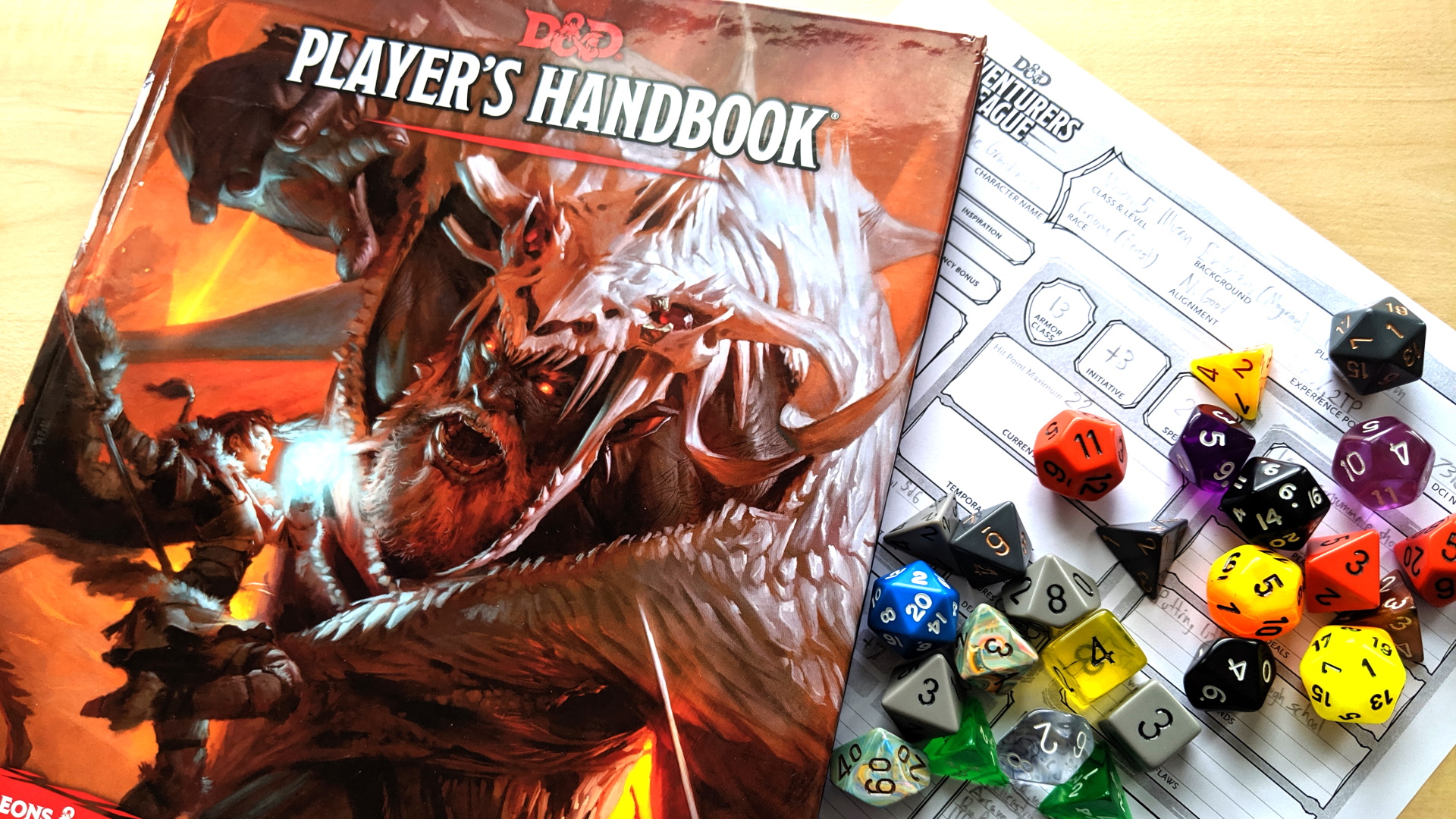
If you want to know how to start playing D&D, there's really never been a better time. The one RPG that has arguably inspired the most games (and stories about games) of them all is in a wonderful spot, and people all over the world are picking up a set of dice for the first time as they prepare to share a wonderful new pastime. Now, you may have heard some intimidating things about the piles of rulebooks you'll need to commit to memory to know how to start playing D&D, but let me tell you right now that this is absolutely untrue. By the time you've reached the end of this article, you'll be all ready to get started.
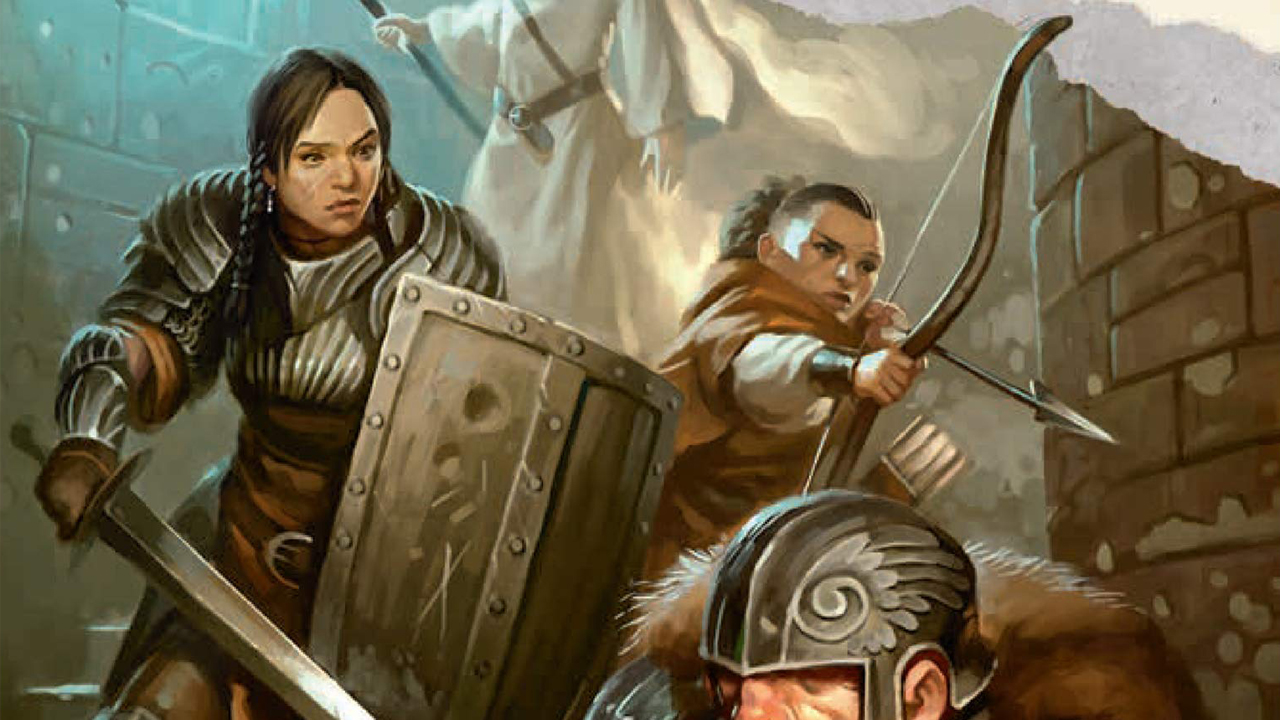
You can go adventuring with friends without ever leaving your home (or inviting anybody over). Check out our guide on how to play D&D online.
This article aims to answer the most common questions a hopeful new player may have as they're looking to start playing D&D, including what you need to know and what you need to physically have on hand before you begin. I've been playing D&D regularly for more than a decade, and nothing stokes my love for the game more than seeing it spread good times and ridiculous table talk to new players. So, regardless of whatever piqued your interest in the first place, it's time to learn how to start playing D&D.
Once you're done, you can go deeper into the hobby by answering the question all good Dungeon Masters ask at some point: how do you write a Dungeons and Dragons campaign?
What you need to have to play D&D
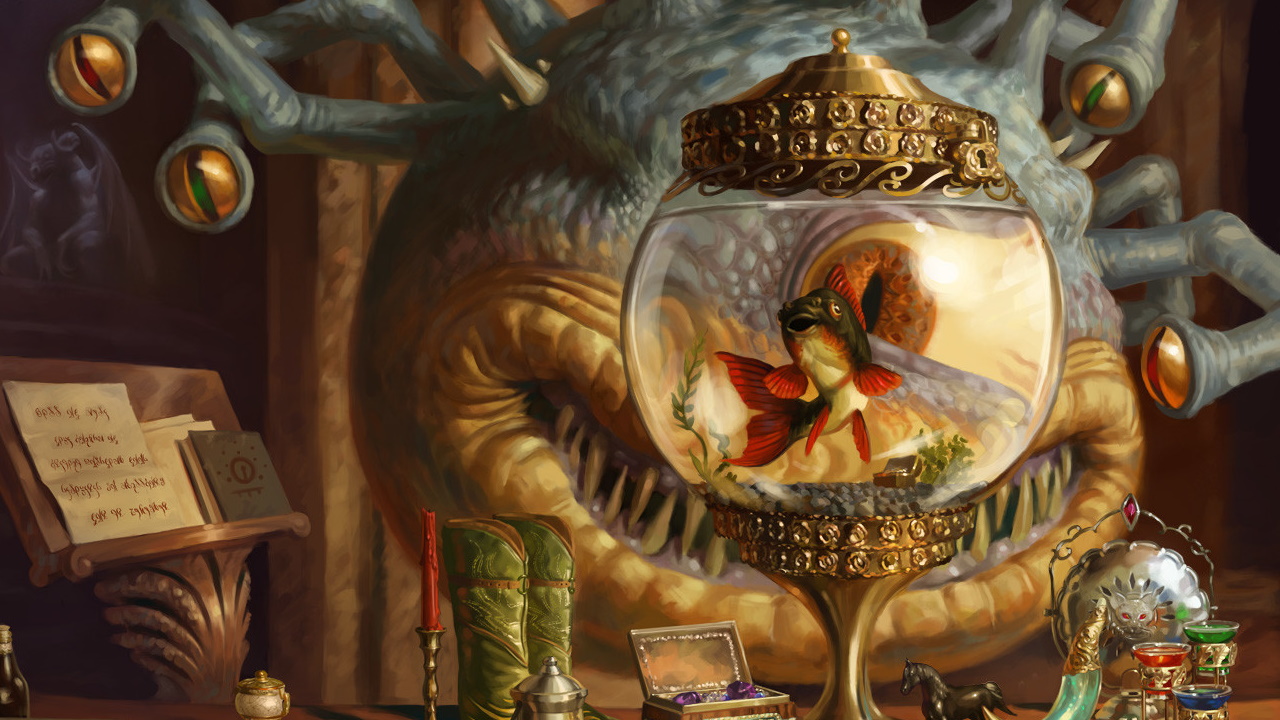
The most remarkable parts of D&D take place in your imagination, (and yes, you should absolutely picture Spongebob doing the rainbow hands as I say that), but you'll need some goods to properly establish your kingdom of fantasy. The most important thing is a set of polyhedral dice. This includes the standard six-sided dice and also ones with four, eight, ten, 12, and 20 faces. The faces are typically labeled with numerals rather than pips, and the dice are referred to individually as D4, D6, and so on. You can find rarer dice that go up to D100 and beyond, but you'll only need a D20 and below to play D&D. Handily, you get a set of these in the Dungeons and Dragons Starter Set.
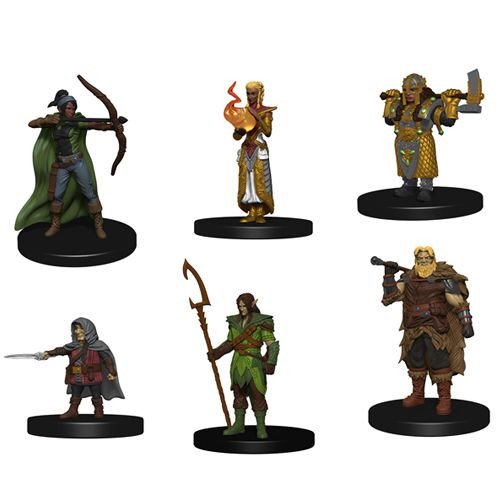
If you plan on playing with miniatures, it's handy to have a few of your own to represent different kinds of heroes.
You can raid your old board games to grab some D6s (trust me, D&D is way more fun than Yahtzee), but you'll probably need to buy a specialty set of dice to get the rest. Consider this your warm welcome to a whole new world of things to compulsively collect. There's an entire industry of dice creators out there and they offer everything from simple solids to color-blending, glittery shapes. There's even a burgeoning market for hefty metal dice - just be careful about denting your table. You only need one standard set of polyhedral dice to play D&D, but it will speed up your rolling if you have at least two or three. If you're playing online, you can just use online dice rollers instead. They're not as fun though.
The second thing you need is a set of D&D's rules. Wizards of the Coast, the company behind the game, offers a basic version of them for free on its website. (download some character sheets while you're at it). "Basic" undersells the 180 page document, as it includes everything you need to create characters and play for hours upon hours with a full party. That said, the character options it affords you are limited compared to those in the D&D Player's Handbook. The handbook is the bible of D&D, and if you plan on playing for a while, you should pick one up when you can.
The third thing you need to play D&D is the most precious resource of them all: other people who want to play D&D. But I'll talk more about finding them later.
Sign up to the GamesRadar+ Newsletter
Weekly digests, tales from the communities you love, and more
What you need to know to play D&D
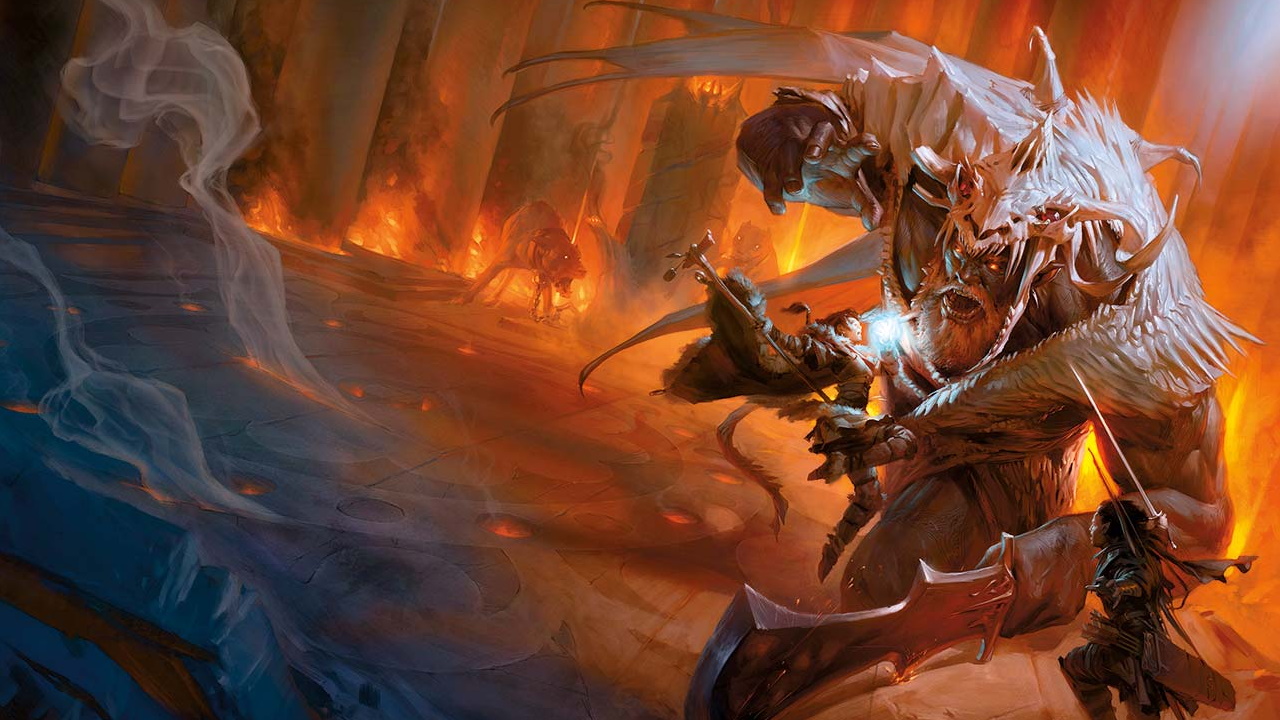
The Player's Handbook ought to have the words "DON'T PANIC" written on the cover, Hitchhiker's Guide style. Once you get it (or the Basic Rules) in your hands for the first time, it's going to feel like a lot. But, again, don't panic. You only need to be familiar with a fraction of the material, and as long as you have your book on hand while you're playing, you only need to know one thing by heart: how to make a check. Spoiler: it's super easy.
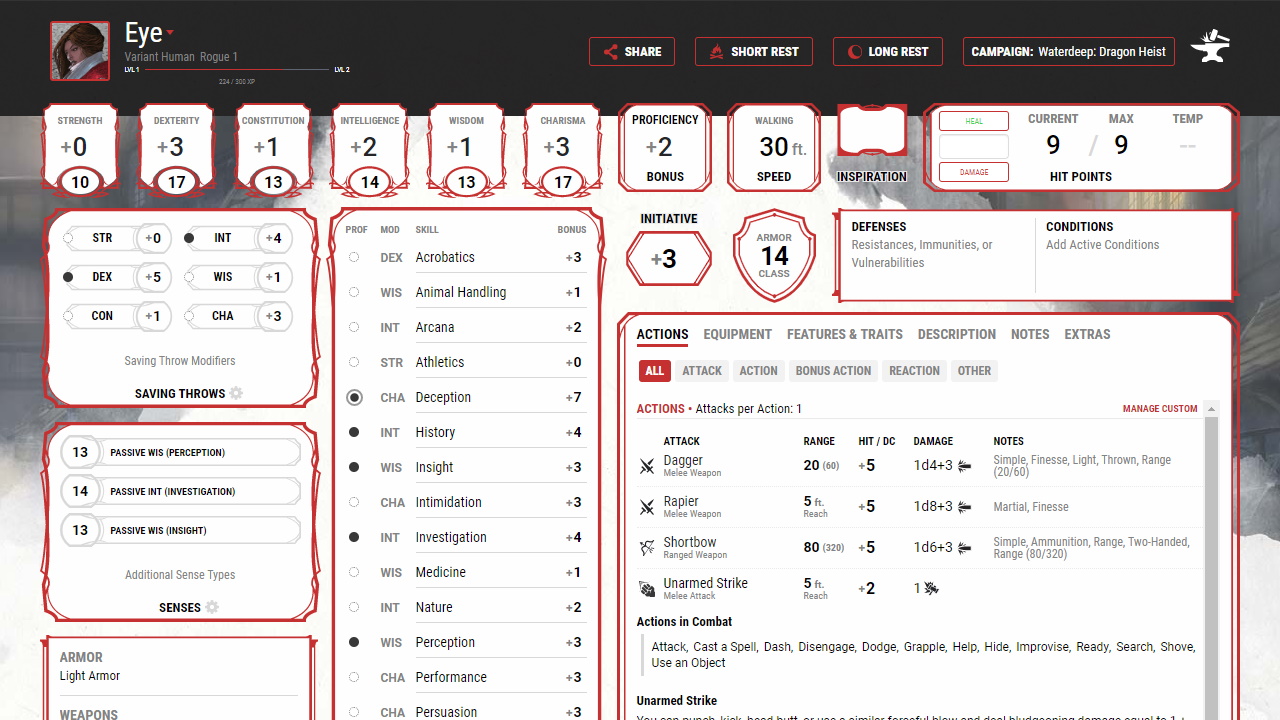
It's a good exercise to make your first character on paper, but D&D Beyond also offers easy tools to make them on your phone or computer.
If your character attempts a difficult task, it's typically resolved by rolling a single D20 and adding certain numbers to the result. If the total meets or exceeds a number determined by the Dungeon Master (DM), your character succeeds. If it doesn't, your character fails. What numbers you add will depend on what your character is trying to do (deciding how they attempt tasks is a big part of what makes the game special) and what they're good at. How do you figure out what they're good at? Head to the "Step-by-step character creation" section of your rulebook, follow the steps, and you'll have your answer!
Tons of options for creating a character exist in D&D, and you can get really fancy by taking feats, by planning ahead for another class you'd like to add to your starting class, and by using material from sources beyond the Player's Handbook. I strongly encourage you to not to do any of that stuff for your first character. Keep it simple. Your D&D group will be much happier if you roll up to the table with a nice and easy Half-Orc Barbarian than they'll be if you bring a super unique Aarakocra Artificer who needs a half hour to figure out each round of combat. You should make sure your character fits with whatever kind of adventure you're planning to play, too, either by building them together with your group or by clearly laying out expectations in a pre-campaign Session 0.
New players often forget about their Proficiency Bonus and miss checks they shouldn't. You'll always add at least 2 to your D20 roll if your character is proficient with the skill or item they're using, so make sure you write their Proficiencies down!
You'll probably have a bunch of questions by the time you're done putting your character together. This is the perfect time to dive into the later chapters of the rules and get an idea of how the game's systems work. Again, you don't need to memorize or even read all of the chapters before you start playing, but at least skim the 'Using Ability Scores', 'Adventuring', and 'Combat' sections if you have time. If you chose a Spellcasting class, you should also read the introduction to the 'Spellcasting' section. Don't feel like you have to read the whole spell catalog itself. I've played for years and years, and I still haven't read through all the spells in any D&D book. There are… a lot.
How to find a D&D group to play with
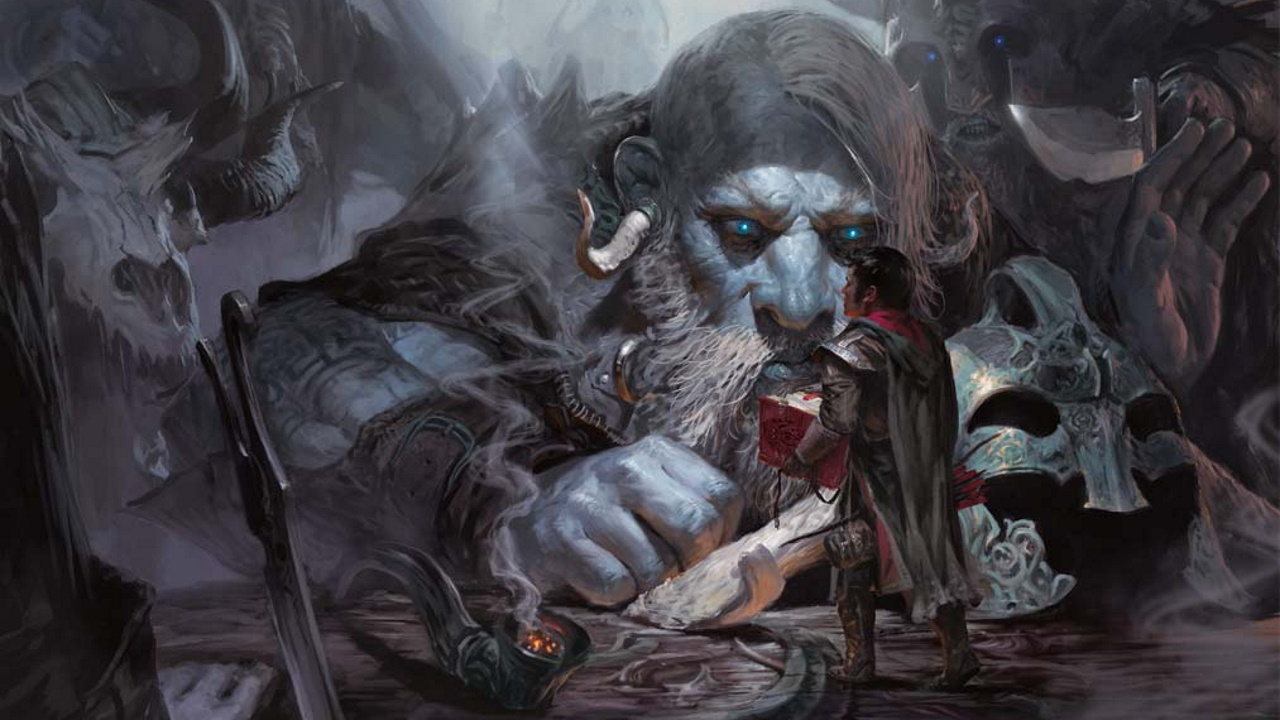
This is where it gets trickier, because you have to start dealing with people and schedules and oh no is it even worth all this headache maybe I should just stay home and roll dice by myself. Few adults have a Stranger Things-like group of friends who are ready to play D&D whenever and wherever, but we still make it work! I mean, if you do have friends like that, that's awesome and you should totally play D&D with them and also cherish those friendships forever. You can skip this section, I guess.
Usually I'd recommend D&D Adventurers League as the ideal first stop for new players, and I'll get into why in a bit. Unfortunately, most of its events are held in-person, which isn't ideal for the current state of the world. For finding socially distanced groups, you'll have better luck starting online.
You could use social media to put out a call for a group, and you may get lucky and discover some friends you didn't know shared your common interest. If you want to expand your search beyond your current social circle, you could put up a post on Reddit's LFG subreddit or scroll through to see if anyone else is looking. Roll20, an app for playing tabletop RPGs online, also has its own looking-for-group listings. As always, be cautious when interacting with strangers online.
I know, nobody uses Facebook anymore, but it can be a handy tool for finding events at local game stores or conventions and linking up with other players.
Once it's safe and responsible to go to bigger events, there's D&D Adventurers League, otherwise known as D&D organized play. Adventurers League is an official meta-campaign for D&D run at the top level by Wizards of the Coast and played by thousands of groups around the world. Go to the Wizards of the Coast event locator, select the D&D category, and you'll find the nearest location running DDAL.
Adventurers League uses standardized rules that go on top of, and in a few cases supersede, the standard D&D systems (don't worry, you don't need to know them ahead of time). This allows a player to take a character from an Adventurers League event with one group and keep playing them with another group, perhaps a few miles or a whole continent away. It also means that you can just show up and play. You don't need to commit to a long-running campaign, though many people do come to all of their local events. Adventurer’s League is a great way to meet D&D players in your area.
If you want to know the easiest way to get your own new D&D group started, no matter where you're playing, read on to the next section.
How to be a D&D Dungeon Master
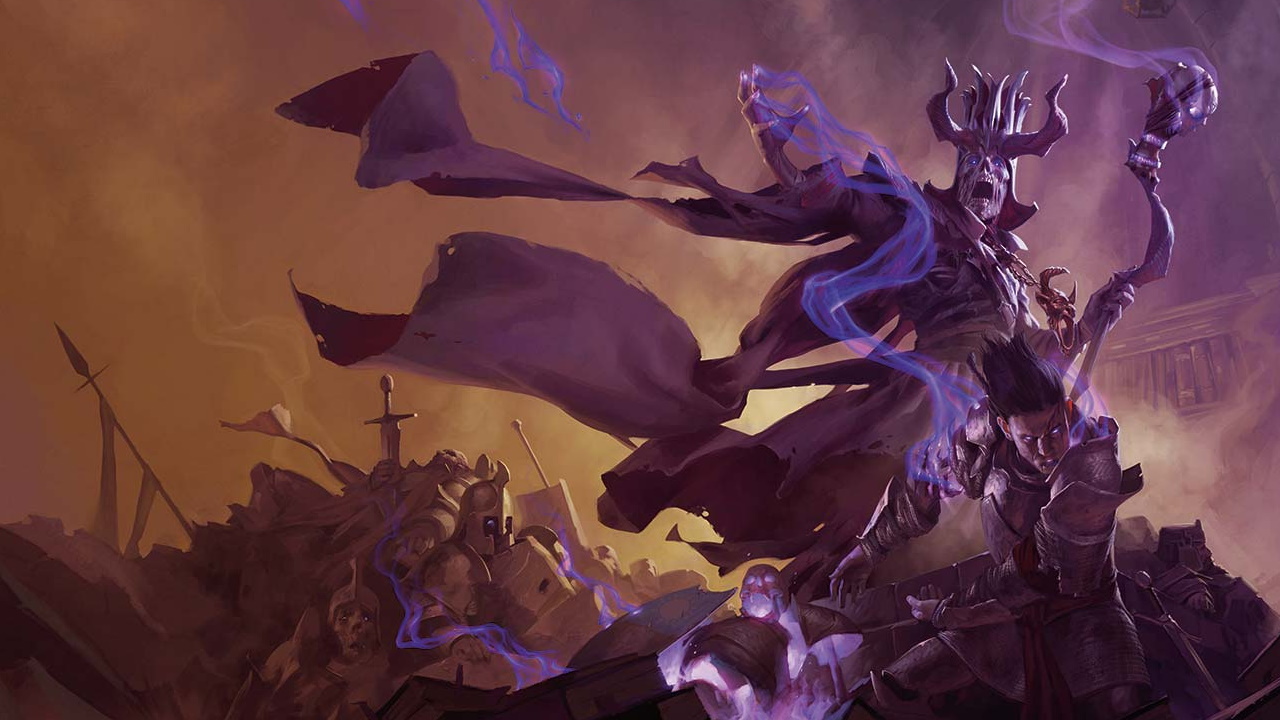
Most players only need to know who their characters are and what they can do to play D&D. Players who take on the role of Dungeon Master (there's only one per game) must account for the rest of the world in the game’s tabletop universe, which makes it both a subtle art and a demanding science. You should put some time in as a player of D&D before you try running your own game, if at all possible. Or you could just watch a lot of Critical Role, but keep in mind that most groups aren't as good at improvisational roleplaying as a table full of professional actors.
D&D is designed to work best with a strong presence at the head of the table. Listen to your players, be flexible and fair, but always remember: You're the boss!
Observing what rules come up the most frequently in play and how other Dungeon Masters handle common situations will give you invaluable perspective for running your own game. If you're planning to do your own campaign and not just a single adventure, the Monster Manual and Dungeon Master's Guide would also be wise investments on your part. The former is filled with creatures to challenge your players both in and out of combat, while the latter has great rules for running full-length campaigns (as well as a bunch of handy pre-made magical items).
Many more seasoned DMs than I have written advice about how to run a game of D&D, so I'll just leave you with one practical pointer that I picked up along the way: ask questions and use the answers. Empowering your players to help fill in the details of the world will make your game better and easier to run, and you can always veto ideas that don't fit. As it happens, I got that mantra from Dungeon World, so there's another piece of advice: check out games besides D&D and steal any ideas you find interesting! For example, it's worth checking out the likes of the Dishonored roleplaying game to see what you could pull out.
What to do next
Hopefully this guide has been enough to put you on the path to your first game of D&D. As you get more experience making and playing characters, you may want to expand your options for the kinds of adventurers you can build. In that case, your next purchase should be Xanathar's Guide to Everything. It bundles together new specialization options for every class, valuable tools for building out your character's backstory, and optional mechanics that DMs can add to their campaigns. There are many more official books out there to expand your possibilities, and a whole world of fan-made content beyond them. Sometimes the two cross over, as with the Critical Role book Explorer's Guide to Wildemount.
Wherever and however you start playing, I hope you keep at it long enough for you to start feeling the magic of D&D. The fuzzy feeling kind, that is, and not the kind you have to spend spell slots on. D&D has been the source of countless happy hours and the start of beautiful friendships for myself and many others, and we're always happy to welcome more people into the hobby. Here’s hoping we meet again on the Sword Coast!
I got a BA in journalism from Central Michigan University - though the best education I received there was from CM Life, its student-run newspaper. Long before that, I started pursuing my degree in video games by bugging my older brother to let me play Zelda on the Super Nintendo. I've previously been a news intern for GameSpot, a news writer for CVG, and now I'm a staff writer here at GamesRadar.



